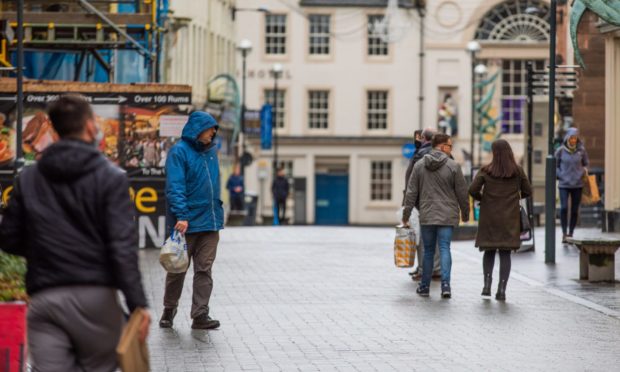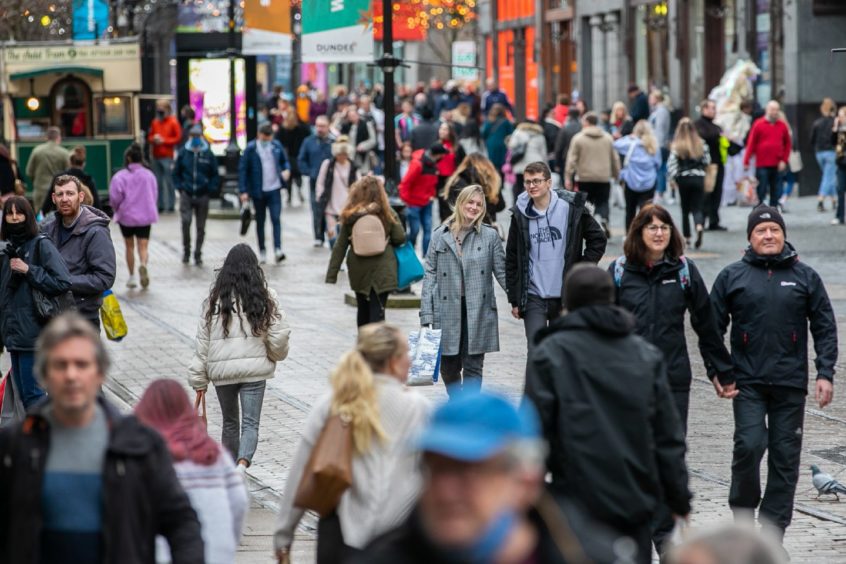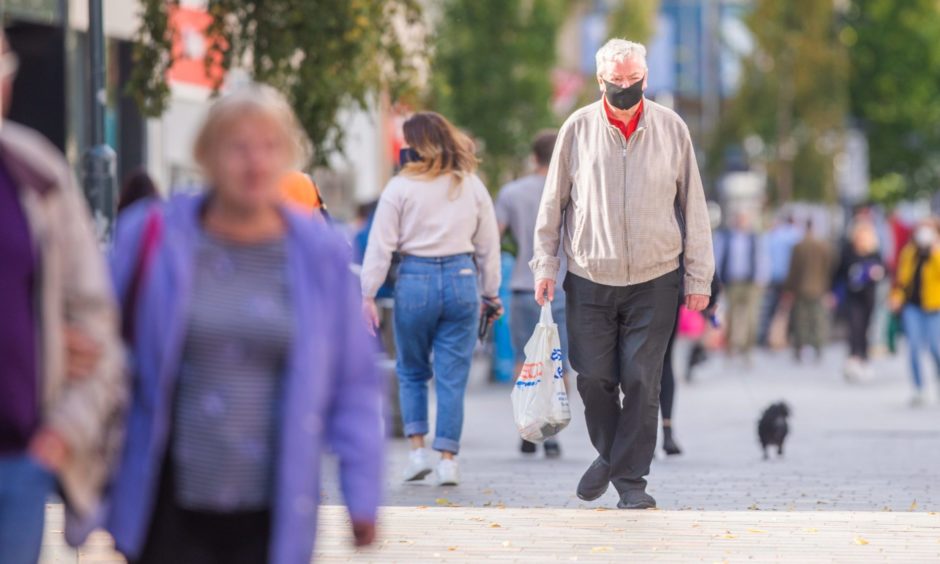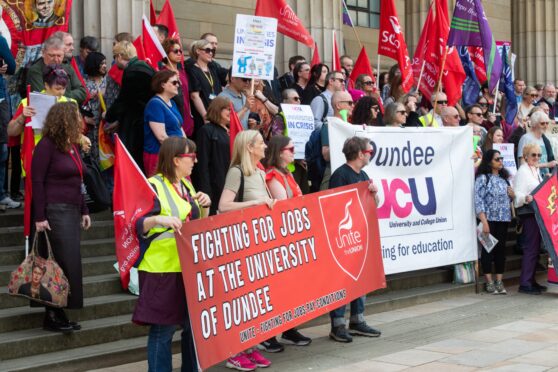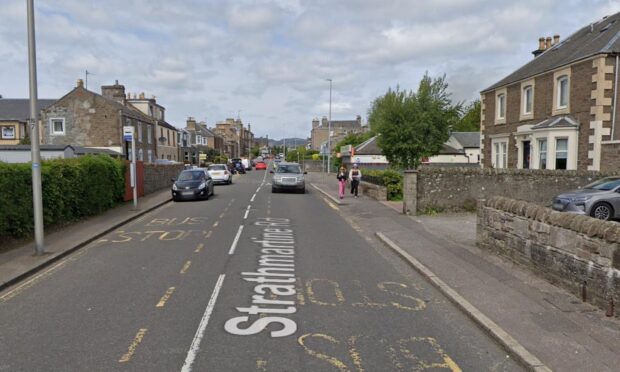Traders are being urged to stick together as Level Four coronavirus restrictions put the brakes on hopes for a post-Christmas business boost.
Only essential retail units will be able to remain open in Tayside and Fife for at least three weeks until the next Scottish Government review.
Across the UK, the annual Boxing Day spend plummeted by £1 billion, according to retail experts Springboard, with the number of shoppers on the streets before noon down 60%.
St Andrews BID manager Jane Kennedy said times were tough.
“The independents and all businesses across Scotland are suffering,” she said.
“There’s a feeling of we have to do the right thing and we know it has to be done but it’s so frustrating.
“Everything they have been asked to do, they’ve done this year and they have complied with all the rules. But there is frustration about where the transmission happening – is it happening in shops, in schools, in care homes, in people’s houses?”
Ms Kennedy described the last few months as “desperate times” for many local businesses.
“For many, the only way they can get through January and February is because of the key trading times in November and December,” she said.
“This year, because of the pandemic and other additional obstacles, they have had the worst November and December in years.
“A lot will really struggle to get through the next couple of months.
“The closure is for three weeks to begin with but a lot of people think it will be extended. That’s a worry. There are already a lot of empty businesses popping up in St Andrews.”
Steve James, who chairs the Broughty Ferry Traders Association, says business owners will have to look out for one another.
He said: “We’ve been trying to support the local independents, especially the ones like coffee shops and pubs which were affected by Level Three.
“It’s a case of supporting each other. We’ve been trying our best to promote what people are doing on Facebook, like if they’ve moved to doing takeaways.
“We’re keeping our fingers crossed this lockdown won’t be as long,” he added.
“A lot of businesses are struggling and some are on their knees. There are pubs that don’t do food and have been shut again for a long time. It’s killing them.
“We’ve got to stick together and work as a unit and a team. We don’t want anybody to drift and feel isolated.”
Perth Traders Association chairwoman Dawn Fuge has been helping spread the word about Perth and Kinross Council administering Scottish Government grants worth £2,000 to £3,000 to closing businesses.
She added: “These restrictions did not come as a surprise to us, given the seriousness of the Covid-19 situation, the new strain, and the increase in the number of cases.
“Being required to close is a blow of course, but on the other hand, for many businesses January will be the least damaging time to have to close.
“We had the benefit of being able to stay open in the run up to Christmas, which many other regions did not and we are thankful for that.
“This [grants] will not go very far for most businesses and of course it would be worrying if the closure went on past the three weeks without further help.
“It is my hope that the incredible goodwill we received from local shoppers in the run up to Christmas will continue during lockdown with customers shopping with us via our websites and other available channels.”
Vicki Unite, Chief Executive of Perthshire Chamber of Commerce, said: “As ever, we understand the difficult decisions government has to make in seeking to maintain the fragile balance between looking after the health of the nation and that of the economy.
“However, whatever decisions are made in tackling the virus, it is essential that the businesses affected – which support local jobs and communities – are adequately protected.
“In normal times, for particular sectors, the festive period through to the New Year sales often carries a business through the rest of the year.
“Now, with new restrictions, many business owners are staring closure and job losses in the face.
“For those businesses feeling the biggest impact of restrictions, there needs to be more support. Those who have been denied help thus far also need immediate and substantial help.
“Companies should not be penalised for matters outside their control when they have been doing everything within their power to comply and survive.”
